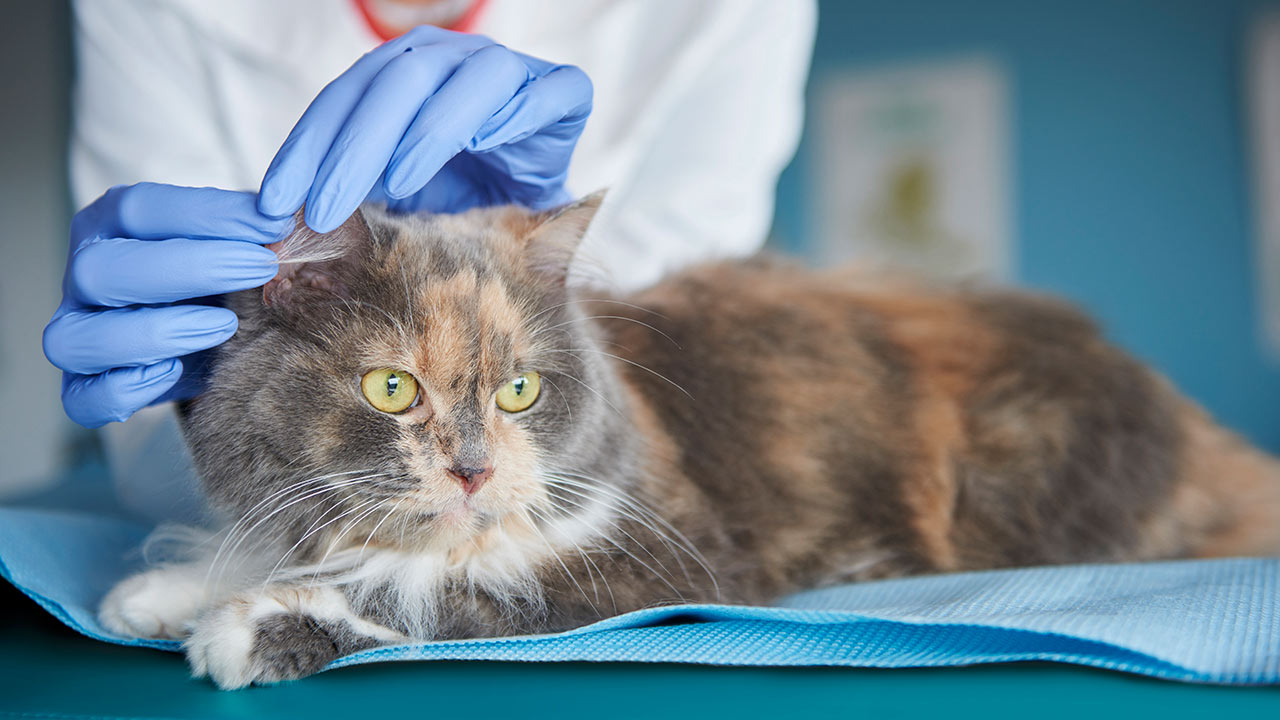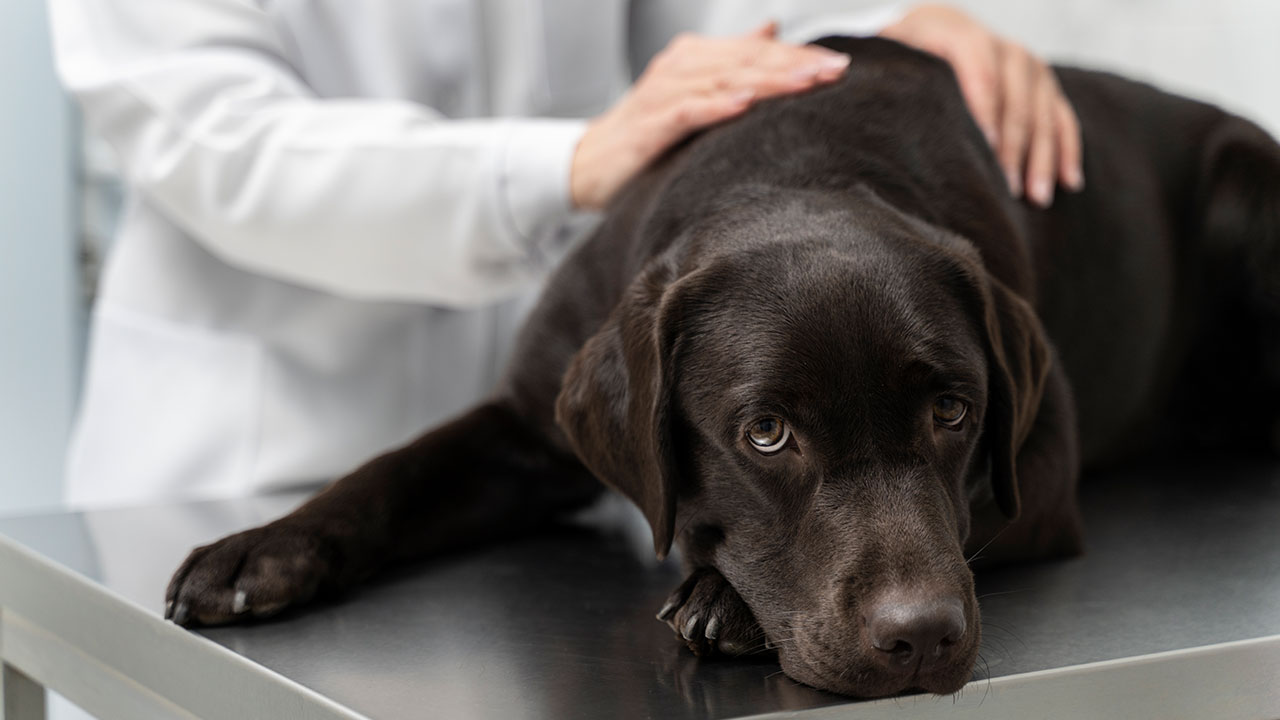Rickettsia – a bacterial infection in blood cells that spreads to dogs through tick bites
In Part One, we learned about another parasitic risk to our beloved canine friends from ticks – Rickettsia, a bacterial disease that spreads through tick bites. In part two, we bring you information on signs to watch for, disease treatments, and advice for keeping your precious pup protected from this infection.
CAN A DOG BE INFECTED AND NOT SHOW SIGNS?
Rickettsia infections can kill dogs, although many infected dogs do not develop any signs of disease. The presence of antibodies against Rickettsia may be found during a routine blood test at the veterinary hospital in dogs that seem healthy, but are actually infected.
A positive test shows that the dog had a tick bite that resulted in an infection. The dog’s immune system was then able to manage the infection without the dog developing signs of illness. While these dogs may seem healthy, they can still create additional local disease risks by spreading the infection to local ticks.
WHAT ARE THE SIGNS OF A DOG WITH ILLNESS CAUSED BY RICKETTSIA?
Dogs with clinical disease caused by Rickettsia may show the following symptoms:
- Lethargy
- Signs of muscle pain
- Appetite loss
- Fever
Anaplasmosis and Ehrlichiosisare diseases caused by Rickettsia andthese can be severe, including neurologic signs such as seizures and uncoordinated movement. Local small bleeding areas are described (“spotted fever”), and dogs may have nose bleeds or other areas of bleeding in the gums or membranes around the eyes and nose. Death can sometimes occur, even quite early in the course of the disease.

Ehrlichiosis can go on to cause additional signs, including:
- Enlargement of the lymph nodes and spleen
- Weight loss, chronic pain, nerve injuries and eye changes
Getting an affected dog to the veterinarian to confirm the diagnosis and promptly start treatment results in recovery for most Rickettsia-infected dogs. Treatment delay or the presence of other underlying health conditions can lead to more severe cases and potentially death.
A recovering dog typically shows a reduced fever with improved activity and appetite. If there are no signs of recovery within 24 to 48 hours after starting appropriate treatment and supportive care, other potential causes of illness should also be considered.
WHAT ARE THE TREATMENTS FOR SICK DOGS?
Choosing the correct antibiotic at the correct dose is the treatment of choice for these tick-borne bacterial infections. Often antibiotic treatment is the only therapy needed. Some dogs with moderate to severe disease may need more care including blood transfusion, intravenous fluids, and drugs to control pain. Medication may also be needed for any problems detected in the eyes or kidneys.
It is important to remember that ticks transmit other types of diseases as well, and a dog can acquire other infections from tick bites along with Rickettsia.
ARE OTHER PETS OR PEOPLE IN THE HOUSE AT RISK?
Rickettsia can also cause disease in people, but people get these infections from tick bites and not from infected dogs. People should always be careful regarding the risk of tick bites.
Cats that are bitten by ticks can also get infected, and infections have even been seen in cats reported by their owner to live entirely indoors.
People have caught Rocky Mountain Spotted Fever from the tick when removing it from a dog. Therefore, it is recommended you wear gloves, remove the tick carefully with a tool, do not put your face close to the site while removing the tick and wash your hands after taking ticks off a dog. Inspect dogs and cats for ticks every day, and consult with your veterinarian to get effective long-duration tick control treatments for your dogs and cats.

HOW DO I PREVENT RICKETTSIAL INFECTIONS IN MY DOG?
There are a few steps you can take to prevent tick infection in your beloved pooch. Because there are no vaccines currently available to protect dogs against Rickettsia, the best solution is a consistent, effective tick protection program, which you can discuss with your veterinarian. This will also help reduce the risk of other tick-borne diseases.
Other things you can do to prevent Rickettsia infections in your pup include:
- Avoid wooded or grassy areas at times of the year when ticks are feeding to reduce the risk of tick bite and subsequent infection.
- Ensuring all dogs that use shared animal facilities, such as doggy day care, boarding kennels, or dog parks, receive tick control treatments to reduce the likelihood of Brown Dog Tick infestation.
- Use tick control treatments all year because it is difficult to precisely predict when ticks will be out feeding, and Brown Dog Ticks can be a year-round risk inside homes and kennels.
- Get your dog checked by a veterinarian. Early detection of Rickettsia infections in dogs can be very helpful in reducing disease risks and ensuring treatment is started if needed.
Your veterinarian plays a big role in your pet’s health. Input your location information and get a list of veterinarians near you.
Find A Vet Near Me




